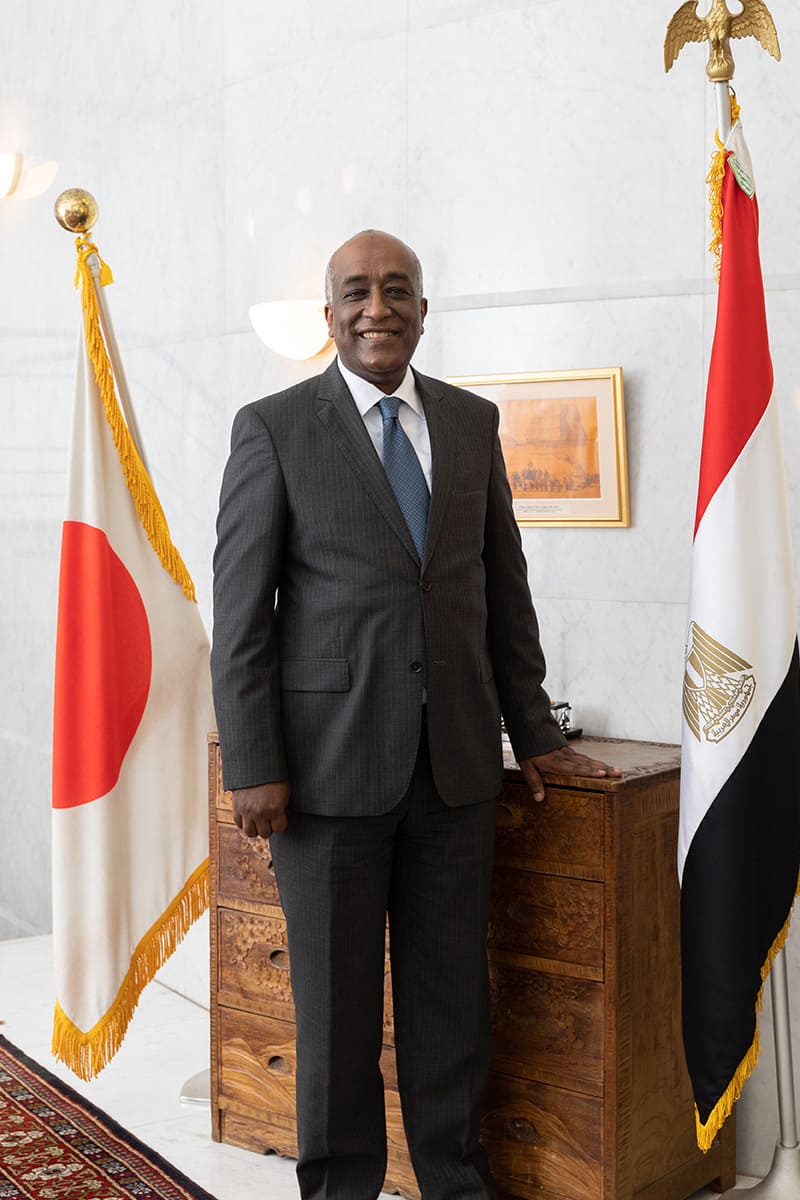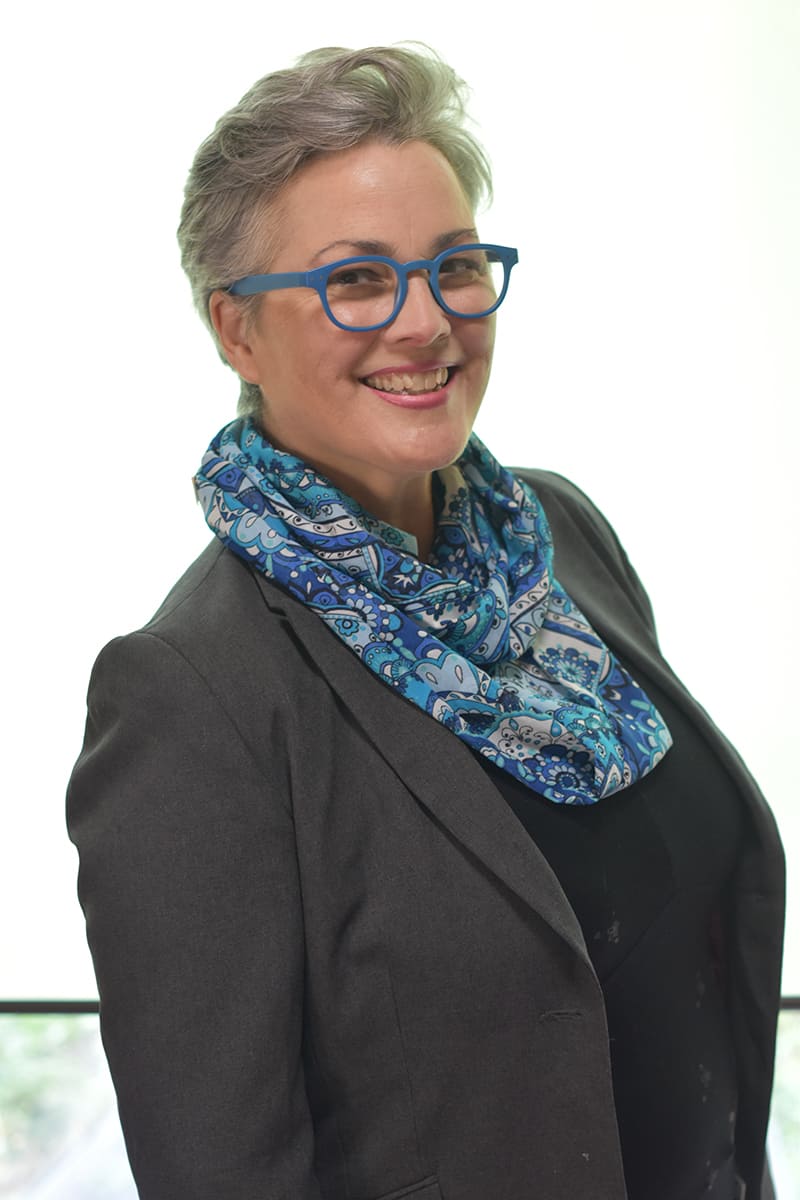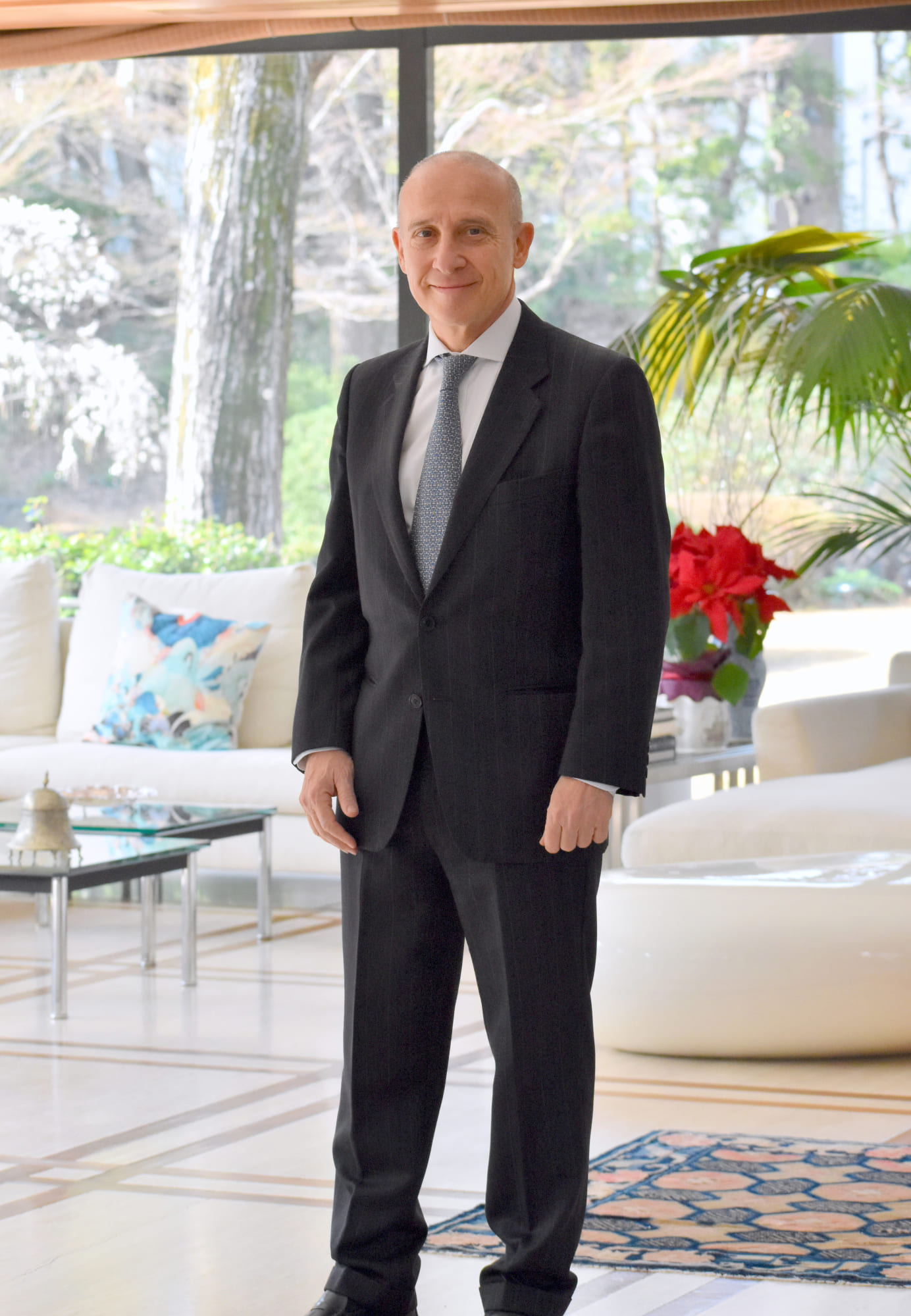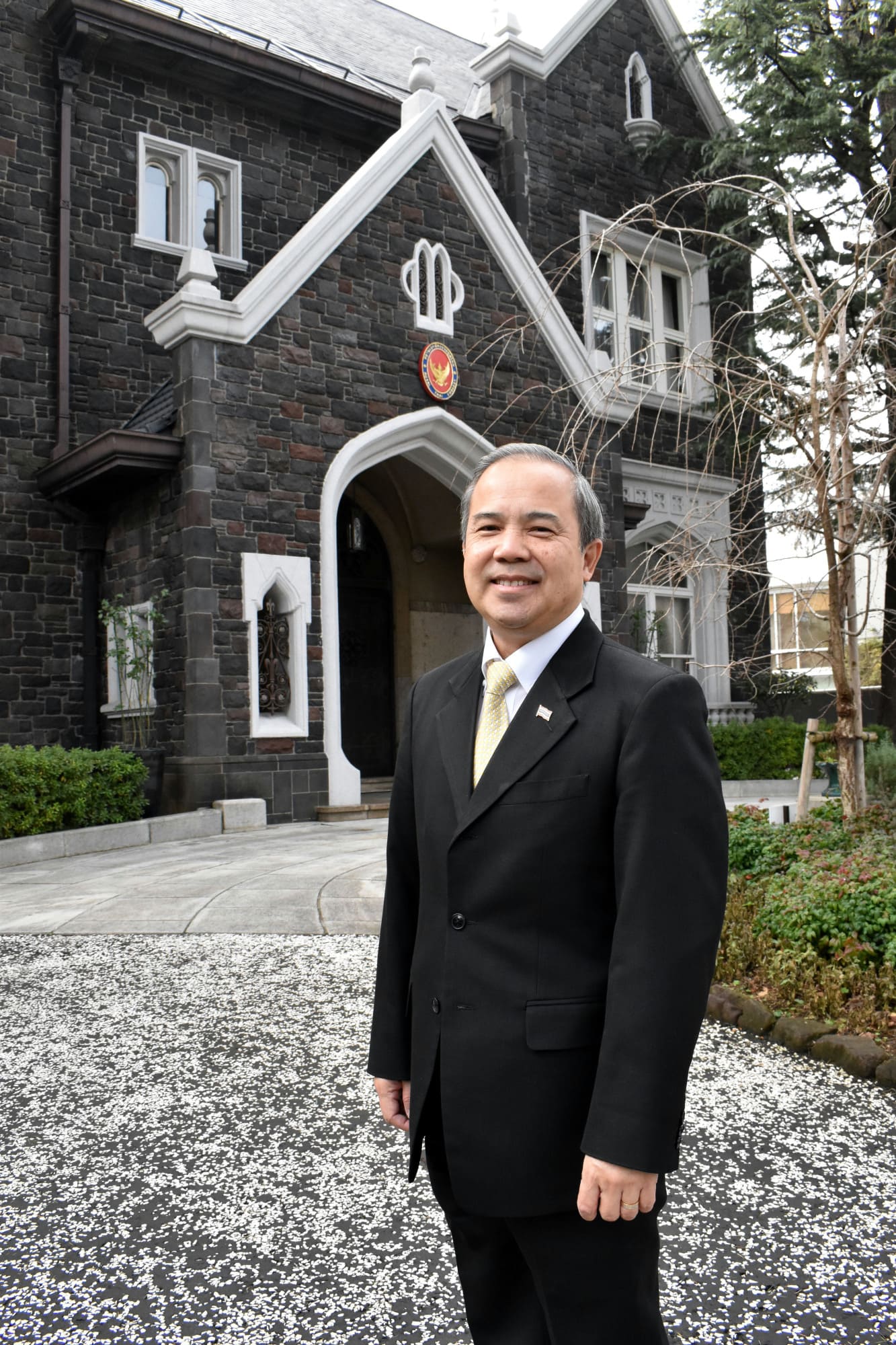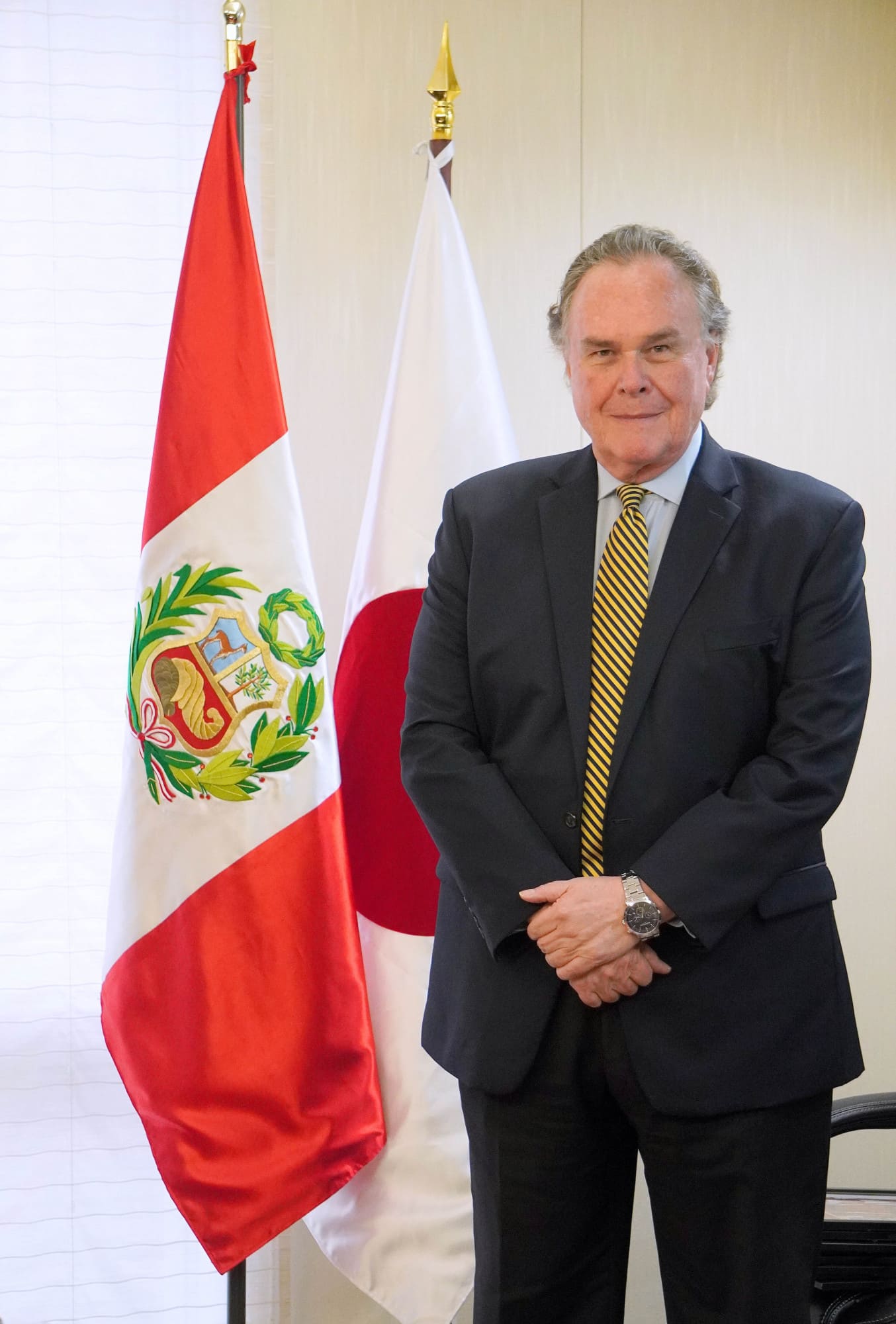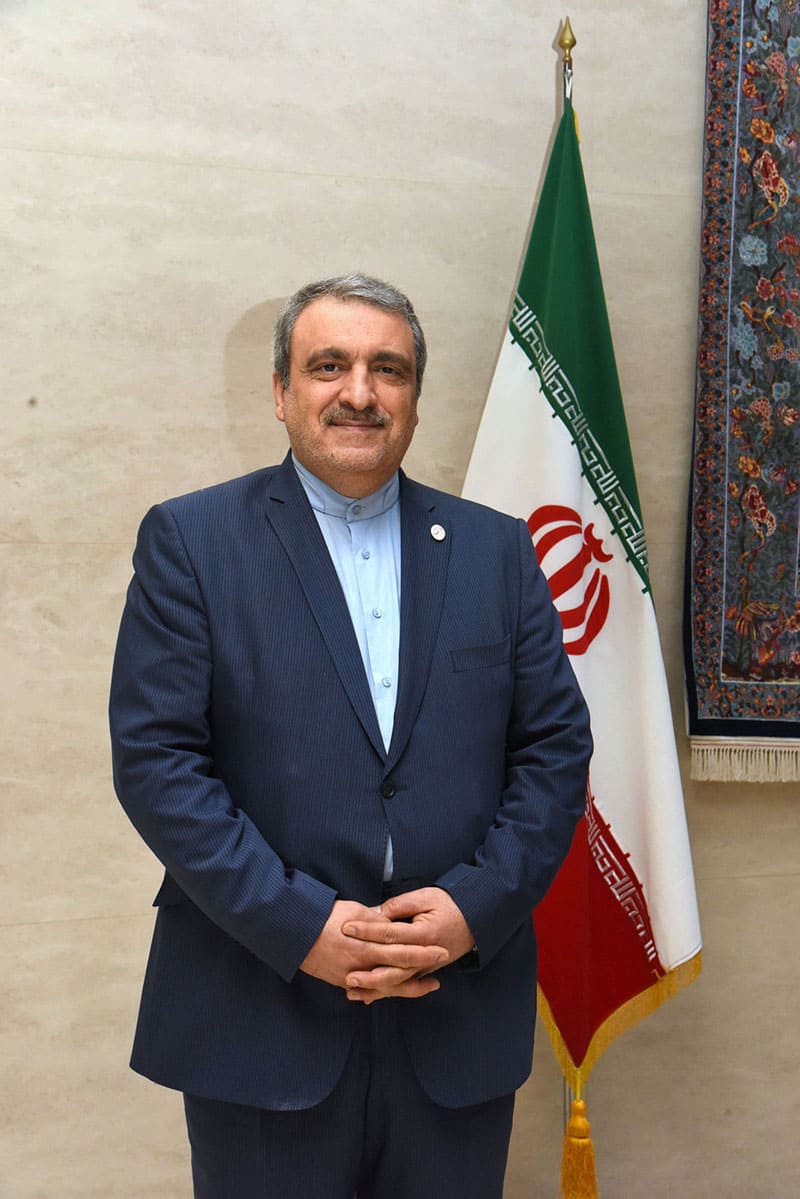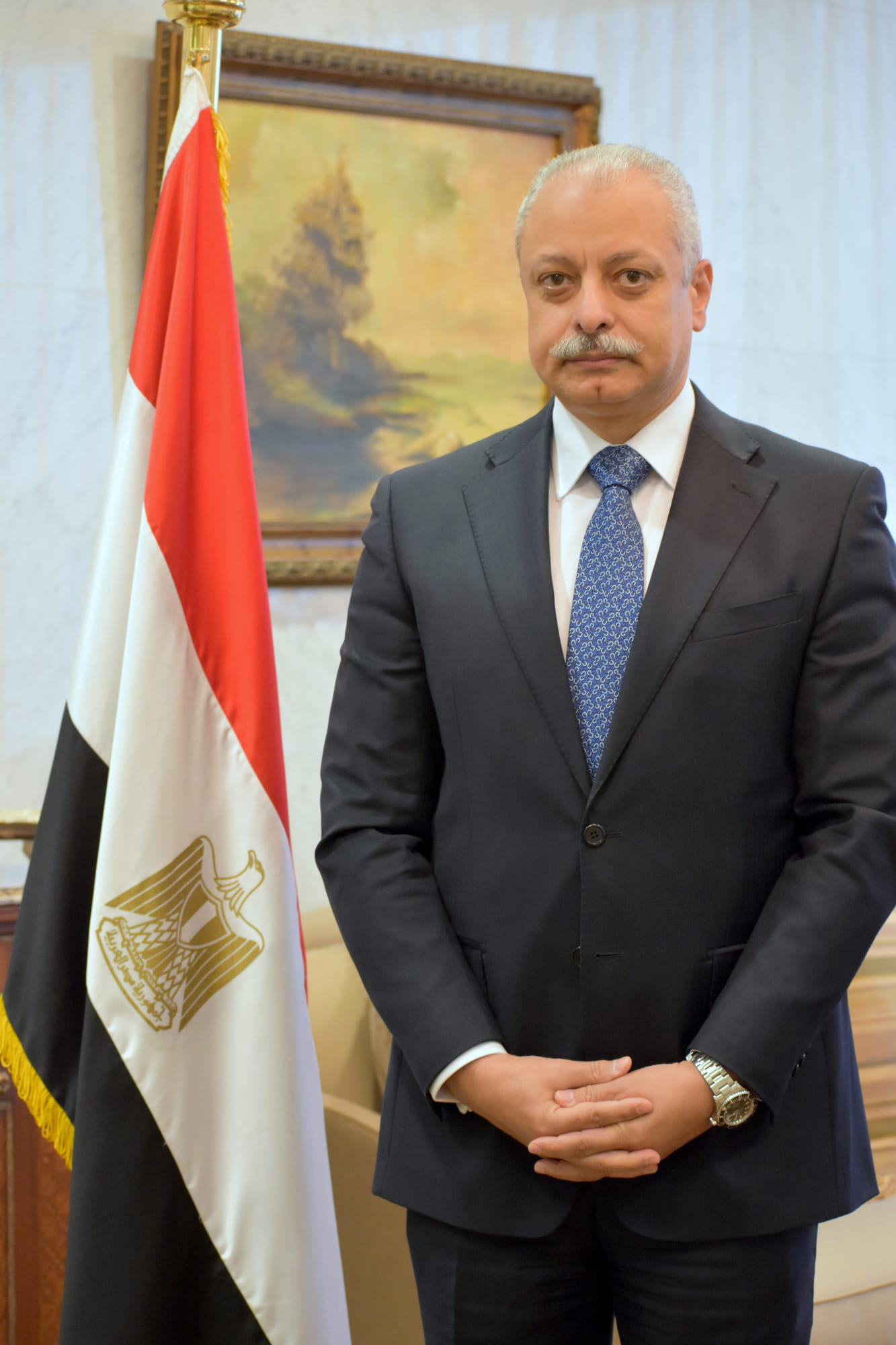
April 28, 2019
Preserving ancient history while looking to the future
Egyptian Ambassador Ayman Aly Kamel on cross-cultural collaboration
BY LOUISE GEORGE KITTAKA
CONTRIBUTING WRITER
- Name: Ayman Aly Kamel
- Title: Ambassador of Egypt (since December 2017)
- URL: https://www.facebook.com/Embassy-of-Egypt-in-Tokyo
- DoB: Sept. 4, 1965
- Hometown: Cairo
- Years in Japan: 1.5
Seated in his embassy’s beautifully appointed reception room, Ambassador Ayman Aly Kamel has much to share about Egypt’s relationship with Japan. Along with successful efforts to restore Japan’s confidence in Egypt as a tourist destination, the two countries are now cooperating in such diverse fields as education and archeological preservation.
Having served as consul general of Egypt in Sydney from 2010 to 2014, Kamel didn’t expect another assignment to the Asia-Pacific region quite so soon. His older son, however, was a fan of manga culture growing up and had long been intrigued by the idea of living in Japan.
“He was always telling me, ‘I wish you could have a posting in Japan. That’s where I’d like to be,’ and it came true,” said Kamel, smiling at the memory. His son is now studying at a French university but joins his parents and younger brother in Tokyo during his vacations.
Upon becoming ambassador in the fall of 2017, one of Kamel’s priorities was to project more balanced information about his country. He noted that Japanese schoolchildren learn about Egypt’s ancient history and civilization, providing a practical basis upon which to build, but the challenge was to convey an accurate image of modern-day Egypt.
Kamel said that while Japan has generally been a “neutral partner” for his part of the world, the media has been influenced by overseas sources, which, according to him, haven’t always reflected his country’s current reality.
“Due to the recent events that took place in the Middle East since 2011, with the turbulence in several countries, it had created a state of ambiguity and lack of clarity about the situation nowadays in Egypt,” he said.
“This is why I decided to immediately start addressing the major Japanese media institutions,” he said. “I engaged right away with a press conference held at the Japanese national press club, in which I tried to just project the truth without embellishing facts.”
Kamel was pleased with the response of the Japanese press at his efforts to convey Egypt’s current stability after some years of upheaval in the country. He said that the reaction from the Japanese business community and other partners has also been very positive.
Another tangible result is that tourism from Japan is on the rise again, with the resumption of direct flights between Cairo and Narita on his country’s national airline, EgyptAir. Following the turbulence in the Middle East, Japan’s government issued warnings about travel to the region and flights were suspended in 2013. However, tourism is now rebounding, and Kamel was at Narita airport to personally welcome the first flight in from Cairo when services resumed late in 2017.
Regarding tourism, Egypt is currently building the Grand Egyptian Museum (GEM), which will be the largest museum in the world devoted to a single civilization. The museum is slated to open in 2020 and will showcase Egypt’s archeological treasures while offering panoramic views of the nearby Great Pyramids of Giza.
Japan has been involved from the outset as Egypt’s main collaborative partner on the project, with Japanese Egyptologists helping to examine and restore the artifacts. Japanese techniques, both ancient and modern, have been employed at the Conservation Center, a special facility established at GEM with assistance from the Japan International Cooperation Agency (JICA).
Japan’s traditional washi paper has proved to be a boon for the experts working on the restoration. “It comes from 100 percent natural origins, and has no chemicals or artificial ingredients, so it is very useful for the restoration of the ancient artifacts,” Kamel said. “Also, DNA analysis and digital examination of the history of every artifact has been made possible with Japanese digital technology.”
Kamel added that the cooperative efforts for GEM were the catalyst for the new Japan Egyptology Council (JEC), bringing together researchers and scholars in the field and providing a platform for future outreach.
On a personal level, Kamel has found it rewarding to learn firsthand about the values and characteristics that have contributed to Japan’s economic success, and how these are nurtured from an early age by the education system. This influence has recently been extended to Egyptian schools.
When the President of Egypt, Abdel-Fattah el-Sissi, came to Japan in 2016, he visited an elementary school and was impressed by tokubetsu katsudo or tokkatsu (special activities). One of the concepts is fostering key values, such as responsibility for one’s environment, taking turns to lead the group and cooperating with others.
“The president made the decision to bring this Japanese educational system into 200 elementary schools in Egypt as the first phase. Since last September, we have started applying a model called the ‘Egyptian Japanese Schools,’” Kamel said. “I had an opportunity to visit one of these Japanese model schools in Egypt, and I was amazed by what I saw.” A program with JICA has also been established to bring Egyptian educators to Japan for training.
One of Kamel’s core personal values is trying to give back to society. He has regularly volunteered with many organizations, both in Egypt and when representing his country abroad, promoting such causes as regional development and interfaith dialogue.
“I have had the chance through my travels to give some lectures and participate in activities that have the ultimate goal of being united for peace. Trying to bridge the gaps between the people in different places in the world and to promote tolerance among people who have different views or beliefs is important,” he said with strong conviction.
Over 30 years of diplomatic service
Ayman Aly Kamel’s diplomatic career spans more than three decades. He has held roles in various departments, dealing with such areas as Egyptian-European relations, multilateral affairs and cultural relations. Kamel’s international assignments include that of second secretary and consul in Mexico and deputy head of mission and consul in the Sultanate of Oman, political counselor in the Egyptian embassy in Rome, head of the consular mission in Aqaba and deputy ambassador in Amman, Jordan. From 2010 to 2014 he was consul general of Egypt in Sydney, Australia. Prior to becoming Ambassador to Japan in 2017, he had been serving as Egypt’s assistant foreign minister since 2015, and then first under secretary at Egypt’s Ministry of Foreign Affairs from 2016. Fluent in five languages, he holds a bachelor’s degree in French language and literature (1986), and received a diploma in international relations from Geneva (1994). He regularly volunteers for various humanitarian and charity organizations.

